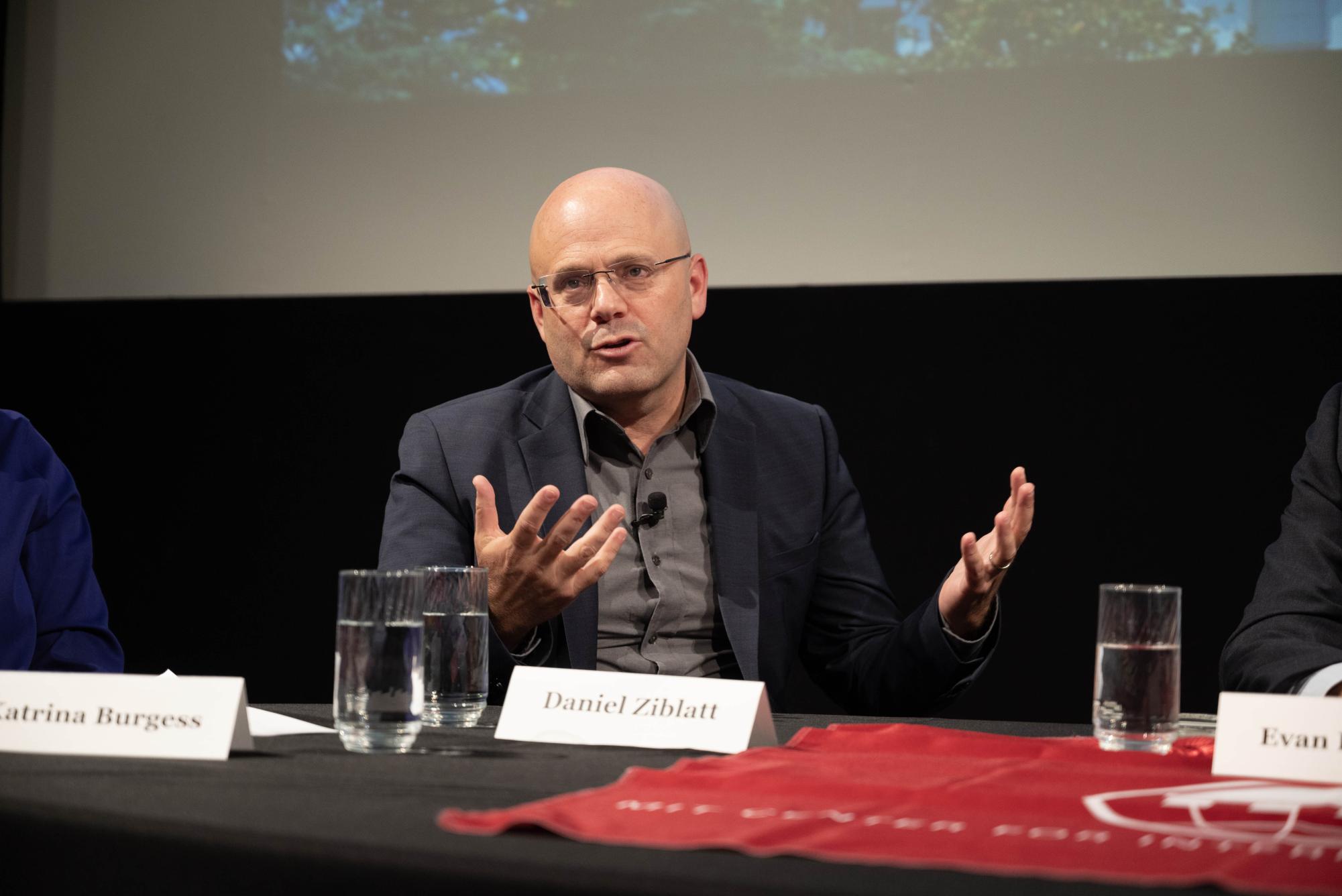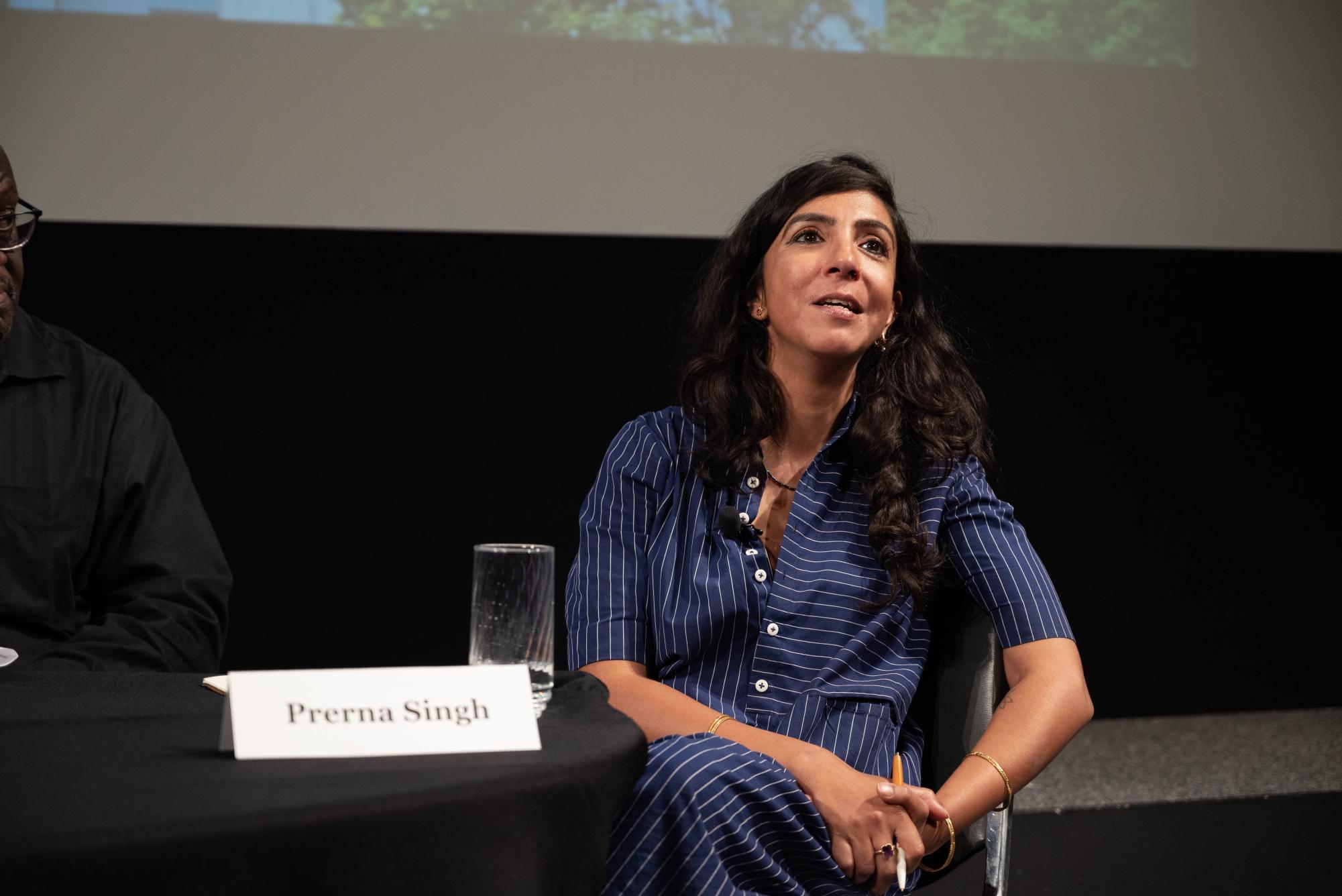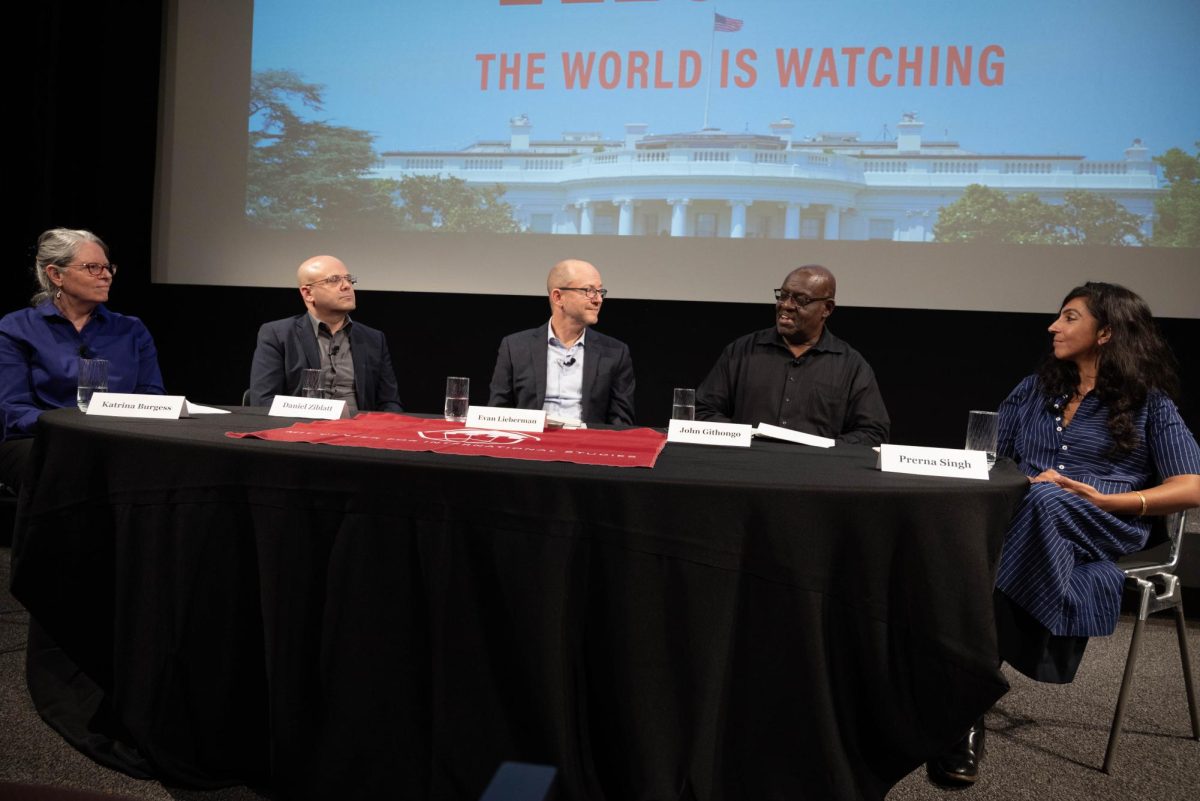At the Massachusetts Institute of Technology, or MIT’s, Starr Forum Oct. 2, political science experts Katrina Burgess, Daniel Ziblatt, John Githongo and Prerna Singh joined MIT political science professor Evan Lieberman for a panel entitled “The 2024 US presidential election: The world is watching” to discuss global perspectives on the upcoming U.S. presidential election. Each panelist covered a major continental viewpoint on what the next presidential administration means for international relations, and how each region will feel the effects of the next commander-in-chief.
“We want to widen the aperture beyond our nation’s borders and capture a sense of how the world is seeing our country,” Lieberman said to a nearly full theater.
The first speaker was Burgess, who reflected on the viewpoints Latin American governments hold during this election season and which policies affect them. Burgess emphasized the range in support for each campaign issue amongst Latin Americans.
Statistics show that a majority of people feel Harris would prioritize pathways to citizenship for immigrants while Trump would maintain border security. These same polls report that Latin Americans have low confidence that Trump will do the “right” thing regarding world affairs. The majority of respondents also agreed that the U.S. is no longer a good example of a democracy.
“Latin America does not appear in [Harris’ or Trump’s] platforms,” Burgess added.
This raises the question, Burgess said: why is the U.S. leaving the closest geographic continent out of the discussion?
“It’s a benign neglect, punctuated by security threats. In the Cold War it was communism. In the 1990s it was the drug trade and since 9/11, it’s really been migration and the border,” Burgess said. “‘Make America Great Again,’ should include the Americas.”
Next came Ziblatt, discussing an overview of the relationship between Europe and the U.S. Europe recently became aware of several vulnerabilities caused by outsourcing necessary supplies. Constantly reliant on the state of other countries, they are exposed to what comes next in the U.S., he said.
Ziblatt referenced Pew Research Center statistics regarding trends in European political opinion. In Germany and the United Kingdom, there is overwhelming support for Harris, with the exception of the Alternative for Germany, a radical right party that follows similar policies to Trump’s.
Trump causes much uncertainty in the election for Europeans, Ziblatt explained. As president, Trump threatened members of NATO, saying he would not protect them over Russian president Vladimir Putin. This could delegitimize the U.S.’s role in NATO and the reputation it holds in global affairs, Ziblatt said.

“Are European officials going to be willing to share intelligence with Trump?” Ziblatt said. “Maybe we need to hedge our risks here and start looking for allies elsewhere.”
Githongo spoke next, diving deeper into the African continent’s opinion on the U.S. election. Githongo said U.S. democratic practices were important in influencing African democracies.
“The U.S., across Africa, and its model of governance has been a shining house on the hill. … It is open and it is free,” Githongo said. But when it comes down to the current election, the fate of influence remains uncertain.
There has been an outpouring of support in the streets of African countries for the Harris campaign by the younger generation, which makes up about 50% of Africa’s population.
“They express the sharpest moral clarity we’ve had since the struggle for independence across Africa … very clear about international affairs and what they consider to be right and wrong,” Githongo said.
Many African countries have vocally supported Harris, especially after Trump referred to much of Africa as “shithole” countries and Trump’s adverse visa policies, which affect the increasing number of African students traveling to the U.S. for university every year.
“The United States is in trouble with Africa,” Githongo said.
Rounding out the presentations was Singh, focusing on India and the upcoming election. Singh dove into how minimally the U.S. election is covered in India. This is, in part, due to a decline in freedom of press in India, she said. While policy and campaigns are marginally discussed in Indian media, there is one topic that shines through.
“The one thing that has received a lot of coverage are presidential debates,” Singh said. She attributed this specific focus to the democratic erosion that India is facing due to a rise in populist groups and leaders.
The majority of India supports the Democratic party in theory, Singh said. However, the Hindu National Party has endorsed Trump.

Singh highlighted how consistently Harris is covered in the media, partially because of her maternal Indian heritage and partially because of her scolding Prime Minister Narendra Modi regarding human rights practices.
“There was a time when the U.S. could dismiss India as a country … but those days are gone,” Singh said. She said that India is the largest growing economy in the world, and as a result, the country worries less about the election in America than other global players may.
The News asked the panelists if they thought the once-prominent respect for U.S. democracy is lost.
“America has experienced a democratic backslide,” Ziblatt said. He acknowledged a downward trend in approval of U.S. democracy.
“Democracy in the United States is important to people around the world,” Githango said.
The Huntington News is dedicated to serving the Northeastern University community with original, professional reporting and creating an environment in which student journalists can learn from one another. Support an independent, free press at Northeastern University with your donation today.









![A demonstrator hoists a sign above their head that reads, "We [heart] our international students." Among the posters were some listing international scientists, while other protesters held American flags.](https://huntnewsnu.com/wp-content/uploads/2025/06/image12-1200x800.jpg)


